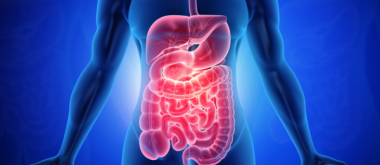Vitamin D is a potent hormone that plays a central role in the mineral-conductive metabolism of calcium, phosphorus, and magnesium. What’s more, it supports the immune system and influences mood. With such powerful benefits, it’s an important nutrient when it comes to healthy aging. There’s another link to be aware of however, and that is the link between vitamin D and gut health, which is wide and varied. For example, vitamin D is involved in the absorption of calcium from our body’s stores, the formation of the extracellular matrix (ECM) of our intestines, the immune defense system and their repair, antioxidation and antioxidant reactions, and circadian function. As a result, vitamin D is an anti-inflammatory nutrient that improves insulin sensitivity, protects against diabetes and cancer growth, and modulates inflammatory pathways found in many diseases, including cardiovascular disease, depression, and arthritis.
Vitamin D and Gut Health: What is the link?
Our lives are influenced daily by gut bacteria, which outnumber our cells by 10 to one in our colon. In a healthy individual, gut bacteria can typically coexist in a beneficial relationship with us. However, their population can be easily unbalanced, for example, through antibiotics or diet. In such cases, pathogenic gut bacteria may invade, resulting in the development of irritable bowel syndrome (IBS), inflammatory bowel disease (IBD), and other diseases. Thus, vitamin D and gut health are very closely connected.
Due to the crucial role that vitamin D plays in our body’s metabolism and involvement in the immune system, gut bacteria also play a key role in our overall health. Gut bacteria produce vitamin D3, but only when exposed to sunlight. Therefore, it is important to receive sufficient amounts of vitamin D through safe sun exposure or dietary vitamin D sources. Among other things, this may help reduce inflammation and promote a healthy gut biome.
Microbial Dysbiosis and Autoimmunity
As previously mentioned, our gut bacteria are beneficial unless they become unbalanced. When gut bacteria are unbalanced, they may produce toxins that can contribute to various diseases, including IBD and even. autoimmune diseases such as multiple sclerosis (MS) and type-1 diabetes. Furthermore, in rodent model studies, results have begun showing that vitamin D has the ability to alleviate the symptoms or even reverse these diseases. Therefore, maintaining a healthy gut flora by eating a diverse diet, maintaining regular light and dark exposure, and supplementing with vitamin D.
Vitamin D, Intestinal Barrier Function, and Autoimmunity

Vitamin D, Nutrient Absorption, and Autoimmunity
Our body’s ability to absorb nutrients is not only determined by our intestinal health but also by vitamin D status. Vitamin D is believed to be a key “nutrient transport molecule” in absorbing other nutrients such as calcium, phosphorus, and magnesium. Absorbing these minerals, in combination with maintaining a healthy gut flora, helps maintain healthy bones and teeth. Indeed, sufficient vitamin D levels are important for the absorption of calcium and phosphorus to produce the ECM that makes up our intestines. Additionally, inadequate intake of these nutrients has been linked to various disorders, including osteoporosis, a condition where the bones become fragile and fracture easily, and the above mentioned, rickets.
As mentioned above, vitamin D is one of the nutrients involved in the production and absorption of ECM (extracellular matrix) that shows the anatomy of the mucosal epithelium that lines our gut. Vitamin D is required for efficient nutrient absorption. Not enough vitamin D can result in malnutrition and a reduced ability to absorb calcium, phosphorus, and other minerals. Therefore, it is important to maintain adequate vitamin D levels with age, and if needed, doing so by taking a vitamin D supplement, for example, a vitamin D3 supplement, to support the absorption of these vital minerals.
While understanding vitamins’ and nutrients’ role in the body is essential for maintaining health well into older age, understanding the role our gut health can play can greatly help us lead healthier lives. As studies continue to demonstrate a link between vitamin D levels in the body and the impact on maintaining a balanced gut microbiome, it is possible to further understand how the essential role this vitamin plays in the absorption of essential minerals such as calcium, phosphorus, and magnesium, and its involvement in the absorption of other nutrients such as vitamin K2, choline, and omega-3 fatty acids. As a result, we can identify the importance of maintaining a healthy gut flora by eating a diverse diet rich in these foods, incorporating proper supplementation when levels begin to be unachievable through diet, or partaking of adequate sun exposure. All in all, the verdict is simple; vitamin D and gut health are closely linked, and the relationship is bidirectional.





